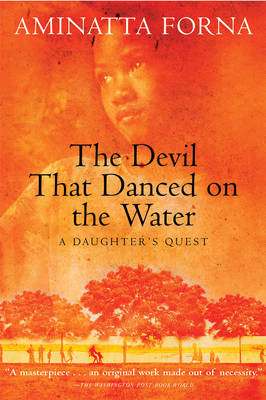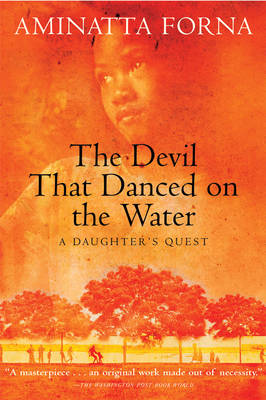
- Retrait gratuit dans votre magasin Club
- 7.000.000 titres dans notre catalogue
- Payer en toute sécurité
- Toujours un magasin près de chez vous
- Retrait gratuit dans votre magasin Club
- 7.000.0000 titres dans notre catalogue
- Payer en toute sécurité
- Toujours un magasin près de chez vous
22,45 €
+ 44 points
Format
Description
As a child Aminatta Forna witnessed the upheavals of postcolonial Africa, danger, flight, the bitterness of exile in Britain, and the terrible consequences of her dissident father's stand against tyranny. Mohamed Forna was a man of unimpeachable integrity and enchanting charisma. As Sierra Leone faced its future as a fledgling democracy, he was a new star in the political firmament, a man who had been one of the first black students to come to Britain after the war. He stole the heart of Aminatta's mother and returned with her to Sierra Leone. But as Aminatta Forna shows with compelling clarity, the old Africa was torn apart by new ways of Western parliamentary democracy, which gave birth only to dictatorships and corruption of hitherto undreamed-of magnitude. It was not long before Mohamed languished in jail as a prisoner of conscience, and worse was to follow. Aminatta's search for the truth that shaped both her childhood and the nation's destiny began among the country's elite and took her into the heart of rebel territory. The Devil that Danced on the Water is a book of pain and anger and sorrow, written with tremendous dignity and beautiful precision.
Spécifications
Parties prenantes
- Auteur(s) :
- Editeur:
Contenu
- Nombre de pages :
- 403
- Langue:
- Anglais
Caractéristiques
- EAN:
- 9780802140487
- Date de parution :
- 18-12-03
- Format:
- Livre broché
- Format numérique:
- Trade paperback (VS)
- Dimensions :
- 150 mm x 226 mm
- Poids :
- 612 g

Les avis
Nous publions uniquement les avis qui respectent les conditions requises. Consultez nos conditions pour les avis.






